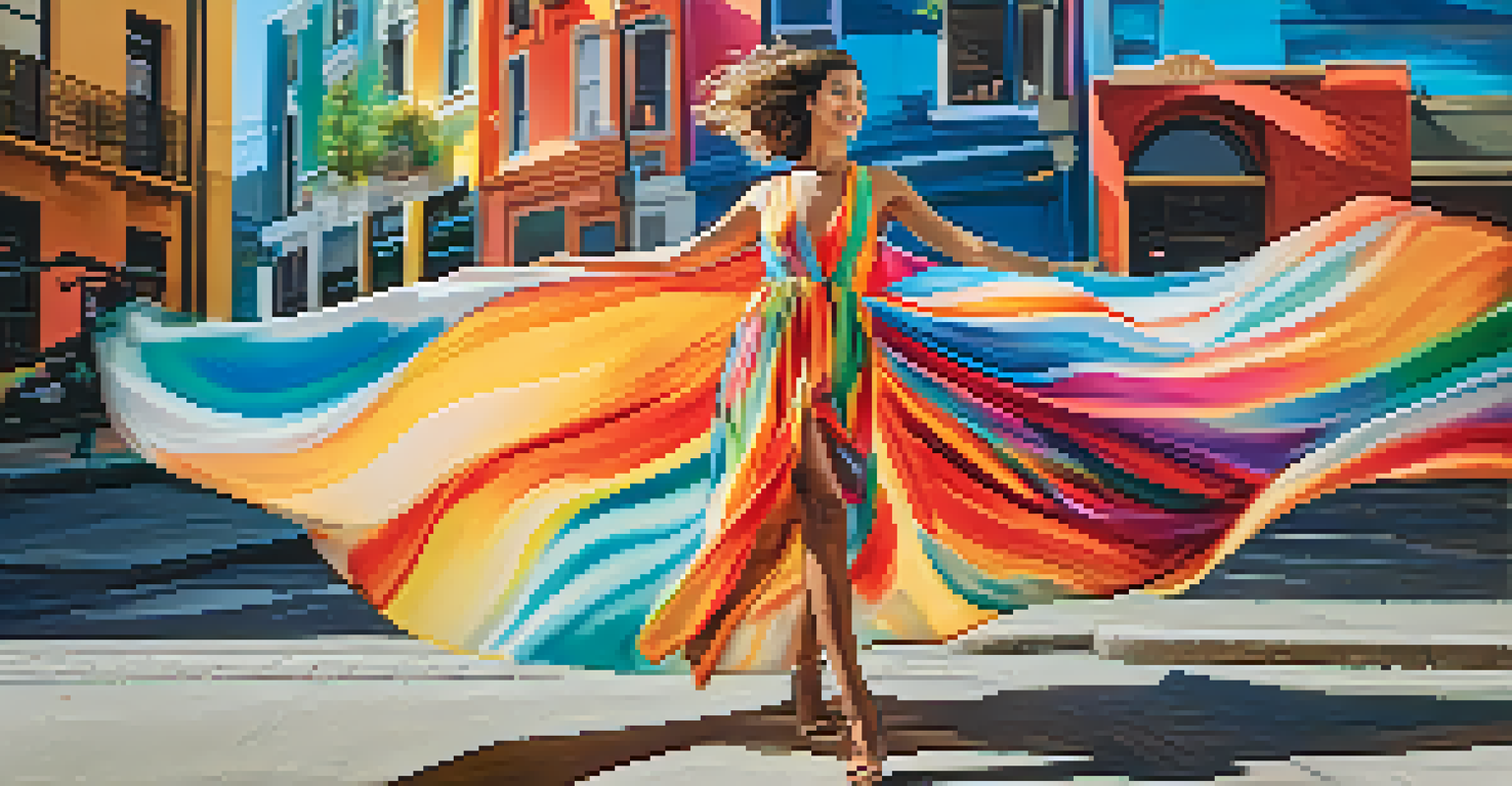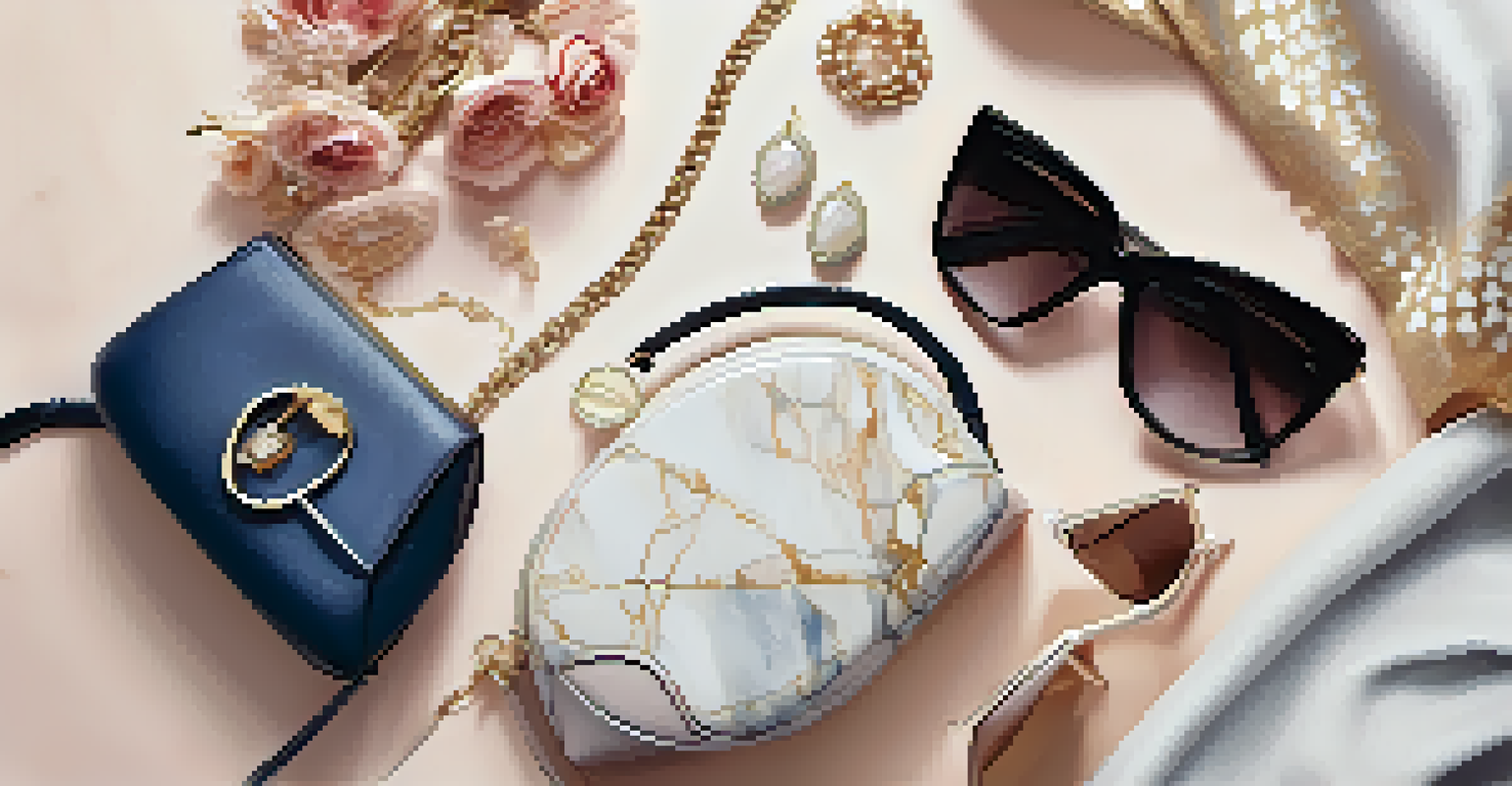The Impact of Fashion Influencers on Luxury Brand Awareness

Understanding Fashion Influencers in Today’s Market
Fashion influencers have transformed the way brands connect with consumers. These individuals, often seen flaunting styles on social media, hold significant sway over their followers' purchasing decisions. Their authentic engagement and relatable content make them trusted sources of fashion inspiration.
Influencers are the new fashion editors, shaping trends and driving sales through authentic connection with their audience.
With platforms like Instagram and TikTok, influencers have turned the traditional marketing model on its head. Instead of relying solely on celebrity endorsements, luxury brands now collaborate with these influencers to reach a wider audience. This shift has democratized fashion, allowing everyday consumers to feel connected to high-end brands.
Ultimately, the influence of these fashion icons extends beyond mere promotions; they create a cultural dialogue around luxury fashion. Their personal stories and unique styles resonate with followers, making luxury brands feel more accessible and desirable.
The Rise of Social Media and Its Role
Social media platforms have become the new runway where fashion influencers showcase luxury brands. Gone are the days when fashion was confined to magazines and catwalks; now, every scroll on a feed can expose consumers to high-fashion items. This immediacy allows brands to create buzz and excitement around their products.

Influencers utilize hashtags, engaging captions, and striking visuals to craft narratives around luxury goods. These posts not only highlight products but also embody a lifestyle that followers aspire to. For luxury brands, this means their items are not just sold; they are woven into aspirational stories that resonate deeply.
Influencers Redefine Brand Engagement
Fashion influencers have shifted brand marketing from traditional celebrity endorsements to relatable figures, making luxury fashion more accessible.
Moreover, social media offers brands the ability to track engagement and tailor their strategies accordingly. By analyzing which influencers create the most buzz, luxury brands can refine their marketing approaches and maximize their impact in the digital space.
Authenticity: The Key to Influencer Impact
Authenticity is a crucial element of why fashion influencers are so effective in promoting luxury brands. Followers are drawn to influencers who share honest reviews and personal experiences rather than scripted advertisements. This genuine approach fosters trust, making followers more likely to consider the brands being showcased.
In the age of social media, brands must not just sell products, but tell stories that resonate with consumers.
When influencers genuinely love a product and express that enthusiasm, it creates a ripple effect. Followers feel more inclined to explore luxury brands when they see relatable figures endorsing them. This relationship between influencers and their audience can significantly enhance brand awareness and loyalty.
Additionally, authentic collaborations between influencers and brands can yield innovative marketing campaigns. When influencers are given creative freedom, their unique perspectives can lead to exciting content that captivates their audience, further boosting the luxury brand's visibility.
The Power of Visual Storytelling
Visual storytelling is at the heart of fashion influencer marketing. High-quality images and videos can evoke emotions and tell compelling stories about luxury products. Influencers leverage this art by curating aesthetically pleasing content that captivates their audience's attention.
For instance, an influencer might showcase a luxury handbag in various settings, from cozy coffee shops to glamorous events. This not only highlights the product but also places it within relatable contexts, making it more desirable. Followers begin to envision these items as part of their own lives.
Authenticity Drives Consumer Trust
Genuine interactions and personal stories from influencers foster trust, encouraging followers to explore and engage with luxury brands.
This approach shifts the focus from mere product placement to creating an experience. As followers engage with these stories, they develop a deeper connection to the luxury brand, ultimately enhancing brand awareness and engagement.
Engagement and Community Building
Fashion influencers excel at building communities around shared interests in style and luxury. By interacting with their followers through comments, live sessions, and Q&As, they foster a sense of belonging. This community aspect amplifies the reach of luxury brands as followers feel part of a larger conversation.
When influencers engage with their audience, it creates a two-way street where followers feel valued and heard. This interaction can lead to more substantial discussions around luxury products, increasing their visibility and desirability. Followers are more likely to share content from influencers they feel connected to.
Building this community not only benefits the influencers but also luxury brands. As influencers cultivate loyal followings, luxury brands can tap into these engaged audiences, making them feel more invested in the brand’s narrative and offerings.
The Role of Analytics in Influencer Marketing
Analytics play a vital role in measuring the impact of fashion influencers on luxury brand awareness. Brands can track engagement metrics, such as likes, shares, and comments, to gauge how well their collaborations are performing. This data-driven approach helps refine marketing strategies and identify successful partnerships.
Understanding which types of content resonate most with audiences enables brands to tailor their messaging more effectively. For instance, if a specific influencer's video receives high engagement, brands can analyze what made it successful and replicate that in future campaigns.
Analytics Shape Influencer Strategies
Brands leverage analytics to track engagement and refine strategies, ensuring that influencer collaborations effectively resonate with audiences.
Furthermore, analytics can help brands identify emerging trends and influencer preferences. By staying attuned to audience responses, luxury brands can continuously evolve their strategies to maintain relevance in the fast-paced fashion landscape.
Challenges and Considerations for Brands
While collaborating with fashion influencers can yield great benefits, brands must also navigate certain challenges. Choosing the right influencer is crucial; misalignments can lead to ineffective campaigns and potential backlash. Brands must ensure that the influencer’s values and audience align with their own.
Additionally, the transient nature of social media trends poses a challenge. What captures attention today may fade tomorrow. Luxury brands need to be adaptable and stay ahead of the curve to ensure their collaborations remain impactful and relevant.

Lastly, transparency is key in influencer partnerships. Audiences are becoming increasingly savvy and expect influencers to disclose paid partnerships. Brands that prioritize authenticity and ethical standards in their collaborations can foster trust and enhance their reputation.